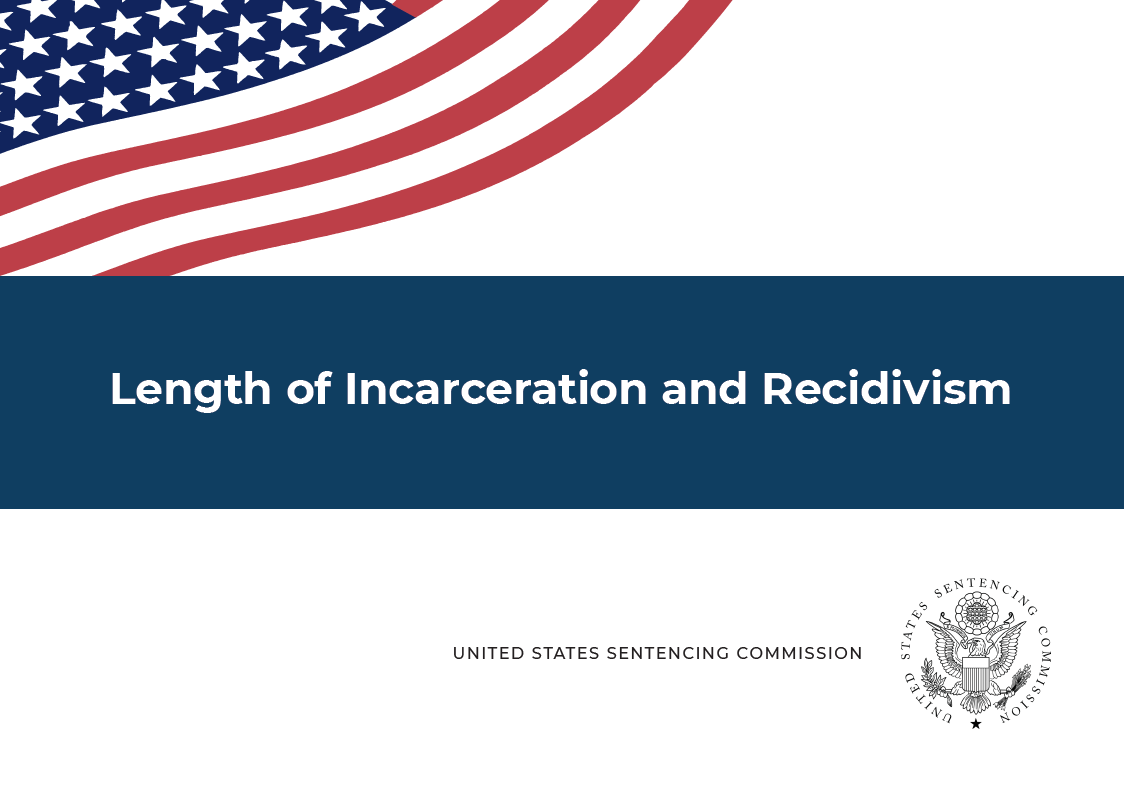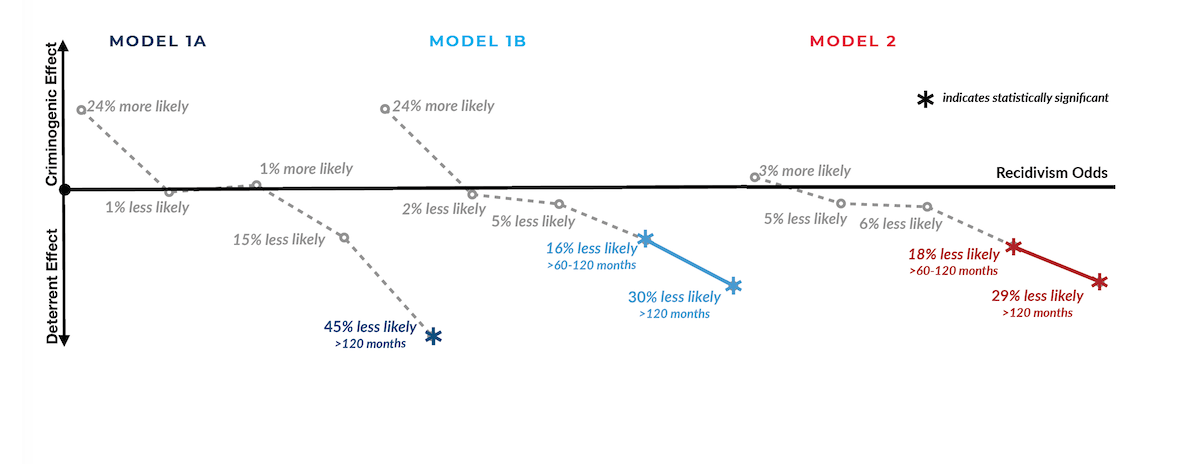Report Summary
 Length of Incarceration and Recidivism is the seventh publication in the Commission’s recent series on recidivism. This study examines the relationship between length of incarceration and recidivism, specifically exploring three potential relationships that may exist: incarceration as having a deterrent effect, a criminogenic effect, or no effect on recidivism. (Published April 29, 2020)
Length of Incarceration and Recidivism is the seventh publication in the Commission’s recent series on recidivism. This study examines the relationship between length of incarceration and recidivism, specifically exploring three potential relationships that may exist: incarceration as having a deterrent effect, a criminogenic effect, or no effect on recidivism. (Published April 29, 2020)
Report Findings
-
The Commission consistently found that incarceration lengths of more than 120 months had a deterrent effect.
- Each of the research designs estimated that offenders incarcerated for more than 120 months were less likely to recidivate eight years after release. In the two models with the larger sample sizes, offenders incarcerated for more than 120 months were approximately 30 percent less likely to recidivate relative to a comparison group receiving less incarceration. In the third model, offenders incarcerated for more than 120 months were approximately 45 percent less likely to recidivate relative to a comparison group receiving less incarceration.
-
In two models, the deterrent effect extended to incarceration lengths of more than 60 months.
- Specifically, offenders incarcerated for more than 60 months up to 120 months were approximately 17 percent less likely to recidivate relative to a comparison group sentenced to a shorter period of incarceration.
-
For incarceration lengths of 60 months or less, the Commission did not find any statistically significant criminogenic or deterrent effect.
- When focusing on the shortest period of incarceration studied (12 to 24 months), the research designs yielded varying results, neither of which were statistically significant nor sufficiently reliable to make evidence-based conclusions.

